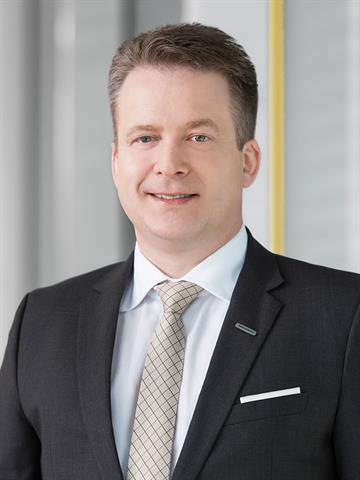 Lars Brzoska |
In a new series,
Forkliftaction News speaks to industry leaders about the state of the industry. We kick off with Jungheinrich board of management member in charge of sales, Dr Lars Brzoska.
FLA: What are the most significant changes in the materials handling sector that you are seeing at the moment?
LB: A key intralogistics trend involves a clear trend away from IC-powered drives in the direction of electric ones. Thanks to the increasing popularity of high-performance lithium-ion technology, this trend is even accelerating. For the first time, we have the technical option of allowing communication between the battery, charging device and vehicle. This increases the performance of battery-powered vehicles and hence the benefits for the customer. By the end of 2017, Jungheinrich will be offering lithium-ion batteries as an option on nearly all its models.
At the same time, intralogistics is experiencing rapid advances in the degree of automation. This is accompanied by the increasing presence of digital solutions which help optimise logistics processes. Intelligent control and warehouse management systems allow people, industrial trucks and stored goods to communicate with one other, creating a partnership dynamic inside the warehouse. Automated guided vehicles (AGVs) are now capable of moving autonomously through the warehouse, obtaining the required data from high-performance sensors and camera systems. These developments contain enormous potential for the entire sector. We continue to develop new solutions in this area to provide our customers with holistic solutions for smart and highly efficient warehousing.
FLA: We've seen some major forklift manufacturers moving into logistics through acquisitions. What is your approach to expanding your market?
LB: Jungheinrich will achieve its sales targets primarily via organic growth. We have developed our business model well in advance, putting us in an ideal position to meet the intralogistics challenges of the future. Some smaller-scale acquisitions are possible if they serve to complete our product range or provide us with access to new markets. But there are no plans for mega-mergers.
FLA: Some manufacturers are reducing their production operations in their traditional bases and moving to lower-cost markets. What are your plans in this regard?
LB: Jungheinrich currently has seven production locations in Germany, plus two plants in China and one in Hungary. We have a specially designed plant in Dresden for reconditioning used stackers for resale purposes. All of our existing plants have been modernised to embody the state of the art. We are, moreover, building an additional plant to produce industrial truck components for the American market in Houston, Texas, within the scope of our ICOTEX joint venture (Industrial Components of Texas, LLC), together with our partner at Mitsubishi Caterpillar Forklift America Inc. (MCFA). In the future, Jungheinrich will continue to adapt its production in line with market requirements so that we can produce at a reasonable cost and based on the needs of our customers.
FLA: There's been some consolidation of the dealer market, especially in the USA. What are your predictions for future movements in dealerships?
LB: Both direct sales and sales through our partners in local markets are key elements in our international sales strategy at Jungheinrich. Our comprehensive, global direct sales network with its own sales and after-sales service companies now extends to 36 countries. Most recently, we have added Malaysia, South Africa, Australia, Chile and Romania. In 70 additional nations, the Jungheinrich product range is sold by partner enterprises. Jungheinrich is going to continue to stay active in all promising markets and will continue to rely on the organic growth of its foreign business.
FLA: With the rapid changes in technology, what advice do you have for materials handling equipment buyers? How can they make the most of the technology without replacing their existing equipment and incurring further capital costs?
LB: Technology is not an end in itself; it must create added value for the user in a cost-effective way. Jungheinrich's products and solutions guarantee that our customers can increase their efficiency and the quality of their intralogistics processes and lower their costs at the same time. And they don't always need to buy new trucks to do that. Jungheinrich offers its customers comprehensive advice on how they can optimise the size of their fleet and, at the same time, maximise the rate of efficiency in the warehouse. We carry numerous products and services which provide additional functions and enhance customer benefits. And our customers can benefit from our sale and lease-back financing programs to reduce their investment outlay and operating costs. Our tailored service offerings ensure constant fleet availability, while digitisation promises a wave of great new opportunities. Connecting different sources of information opens up new solutions that help make our customers' processes more efficient and increase warehouse safety - something which benefits companies both large and small in equal measure.